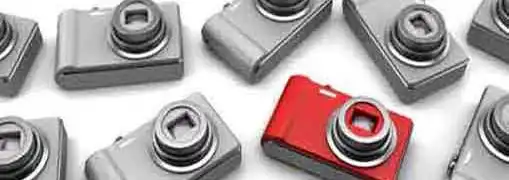Digital Cameras
Expensing a Digital Camera on Your Business Tax Return
You bought a new digital camera for your business last year and now you're ready to expense it on your tax return. Not so fast . . . There are several ways to handle the deductibility of a digital camera purchase -- and in some cases, it may not be deductible at all!
Digital cameras can often have legitimate business purposes.
So as long as you have used company resources to purchase a digital camera it can automatically be deducted on your business tax return, right?
It would be great if it were that simple. In reality, the deductibility of a business digital camera and other electronics is subject to special IRS regulations. These regulations have been put in place because digital cameras have the potential for mixed personal and business use. Since assets that are used for personal use cannot be deducted on your tax return, you will need to be careful how your tax preparer handles it.
Listed Property
Digital cameras and other electronic equipment fall under the IRS category of listed property. Listed property is specifically applied to assets that lend themselves to both personal and business use, and is only relevant for tax reporting purposes. In other words, it will have no bearing on your financial statements.
Listed property must meet a "predominant-use" requirement in order to qualify as a Section 179 expense. Predominant-use means that the asset must have more than 50% qualified business use. If the camera is used for less than 50% business use, it must be deducted through straight line depreciation rather than as a Section 179 expense.
Section 179
Section 179 is designed to allow business taxpayers to write off the total cost of equipment in the year of purchase. The idea is that by allowing companies to expense the total amount upfront, it stimulates the economy by enabling businesses to purchase more equipment in any given year.
Digital cameras that meet the predominant-use test qualify for Section 179 expensing. The caveat is that you will only be able to expense the percentage of the purchase that is used for qualified business purposes. So if you use your new digital camera for 75% business use and 25% personal use, you can take 75% of the purchase price as a Section 179 expense.
Your annual Section 179 expenses are limited to $250,000 in 2010. If you have made other significant equipment purchases, you'll need to consider that before expensing your digital camera. If for some reason you can't deduct your digital camera as a Section 179 expense, work with your tax preparer to treat it as a typical depreciable asset.
Share this article
Additional Resources for Entrepreneurs



Conversation Board
We greatly appreciate any advice you can provide on this topic. Please contribute your insights on this topic so others can benefit.